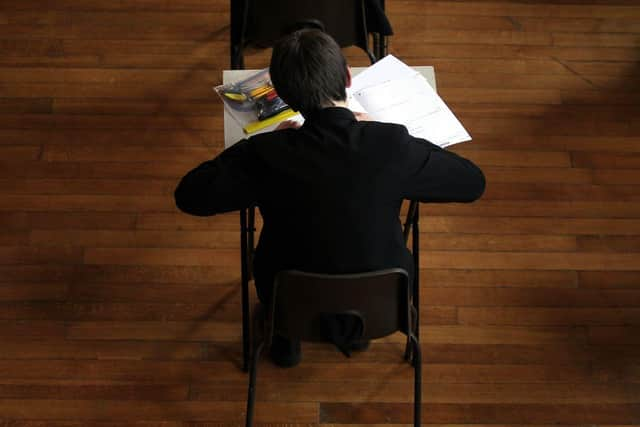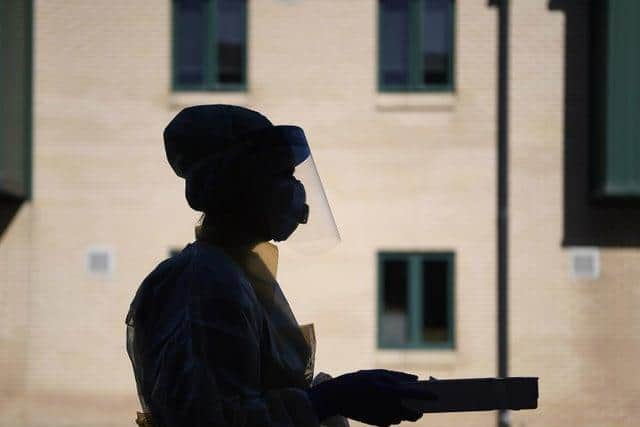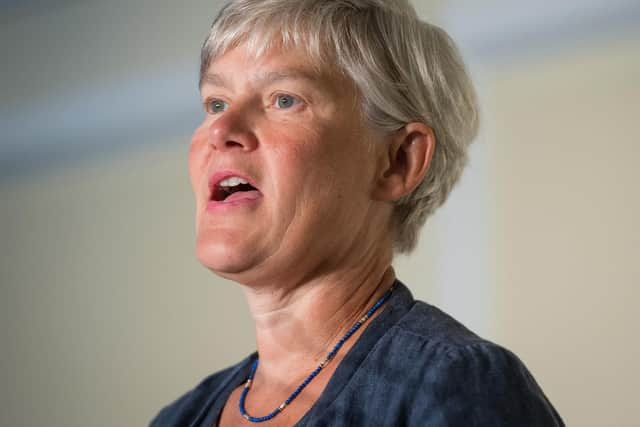Pupils need clarity over exams and grades after lockdowns, warn education leaders
Unions have warned that teachers and pupils face mounting uncertainty ahead of the re-opening of classrooms on Monday as Ministers have yet to provide a clearly defined time frame of how students will be assessed.
Teachers have been asked to assess more than 1.2m pupils in England “on what they have been taught” using evidence of their choosing, and schools will not be required to use previous results as a guide.
Advertisement
Hide AdAdvertisement
Hide AdBut education and business leaders have warned that pupils in the region have been worse hit by coronavirus disruption and have missed more learning than their peers in other parts of the country.


They claimed an already widening attainment gap between pupils in the North and those in London is set to widen further because there is such a high proportion of pupils with disadvantaged backgrounds across the region.
The Northern Powerhouse Partnership, a lobbying group representing northern businesses, said a long-term plan is needed from the Government.
Sarah Mulholland, the head of policy at the Northern Powerhouse Partnership, told The Yorkshire Post: “Pupils in the North were disproportionately affected by the digital divide and school closures pre-Christmas.
Advertisement
Hide AdAdvertisement
Hide Ad“Add this to the fact that disadvantage was already a greater problem here in the North and we start to understand the scale of the challenge in making sure northern pupils in Year 11 and 13 are awarded grades on an equal footing with others nationally”.


"We need to start addressing the lack of detail so far provided for 2021 grading to avoid making last-minute decisions, which cause stress and anxiety to teachers and pupils alike."
Labour’s shadow education secretary Kate Green stressed the Government had had “months” to get plans in place.
Ms Green told The Yorkshire Post: “The Government has had months to get plans in place but as pupils return to their classrooms, teachers still do not have the guidance they need to award grades.
Advertisement
Hide AdAdvertisement
Hide Ad“Parents, pupils and staff urgently need to know how the Education Secretary will ensure grades are fair and consistent between schools and pupils.


“Gavin Williamson created chaos with last year’s results and consistent delays to this year’s plans are creating needless stress and uncertainty for pupils.”
Data provided to The Yorkshire Post last month from the Office of the Children’s Commissioner revealed the huge differences in attainment for pupils in different regions of the country.
The figures have shown that as many as 60 per cent of pupils receiving free school meals in London’s local education authority areas are achieving the top six grades in their GCSE examinations.
Advertisement
Hide AdAdvertisement
Hide AdBy contrast pupils’ attainment for the top GCSE grades in local education authority areas in Yorkshire and the Humber slumps to between just 35 and 45 per cent.


Geoff Barton, the General Secretary of the Association of School and College Leaders, which represents many secondary school headteachers, said it was “imperative” that further exam guidance was issued and that results be allocated consistently and fairly.
He said: “It is imperative that they are provided with this guidance as soon as possible because they are expected to submit grades for each student in each subject by June 18.
“The Education Secretary told the House of Commons in early January that his department and Ofqual had already worked up a range of contingency options but that the details would need to be fine-tuned.
Advertisement
Hide AdAdvertisement
Hide Ad“Two months later this ‘fine-tuning’ has yet to result in schools and colleges being provided with details of the assessment system they are expected to operate this year.
“We repeatedly warned the Government last autumn that it needed a plan B which was ready to roll out in the event of exams being cancelled, but it didn’t listen and this is the result.”
The Department for Education said schools and colleges will set their own judgments and processes.
A spokesman stressed that algorithms would not be used, a reference to last summer’s debacle using an algorithm developed by Ofqual to award grades that was swiftly overturned after protests.
Advertisement
Hide AdAdvertisement
Hide Ad“The department, working closely with Ofqual and the sector, has put fairness and flexibility at the heart of this year’s plans to ensure young people get to their next stage of education, training, or employment,” the spokesman said.
He added teachers will be able to draw on a range of evidence when determining grades, including the optional use of questions provided by exam boards, as well as mock exams, coursework, or other work completed as part of a pupil’s course, such as essays or in-class tests.
__________
Support The Yorkshire Post and become a subscriber today.
Your subscription will help us to continue to bring quality news to the people of Yorkshire. In return, you'll see fewer ads on site, get free access to our app and receive exclusive members-only offers. Click here to subscribe.
Comment Guidelines
National World encourages reader discussion on our stories. User feedback, insights and back-and-forth exchanges add a rich layer of context to reporting. Please review our Community Guidelines before commenting.